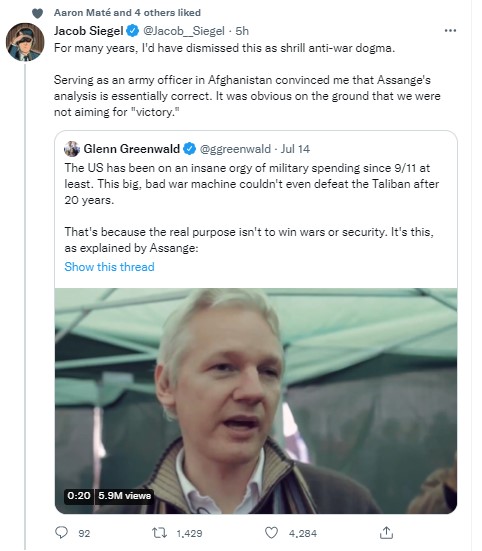Antitrust Victory
Good news, reported by Matt Stoller:
The problem is not convincing voters that monopolies are a problem. They already believe that. The problem is convincing them that doing something about these problems is possible. This fatalism also shows up in conversations with policymakers, businesspeople, and workers. There are any number of comments you’d recognize making this point. Congress is corrupt. Big tech is too powerful. Washington is broken. Big money runs everything. The government works for big business. Essentially, the case for concentrated corporate power is that, well, they are simply too entrenched to overcome.Well yesterday, the anti-monopoly political movement showed that it is possible to use our political system to fight concentrated power. In a shocking action, the House passed a provision to strengthen antitrust laws by a vote of 242-184. Google, Amazon, Apple, the U.S. Chamber of Commerce, and various big tech funded trade associations opposed this bill, and Republican leaders like Jim Jordan and Silicon Valley Democrats Zoe Lofgren fought it bitterly. But they lost. And this is very weird to write, because Google never loses in legislative votes. Ever. But they did yesterday.


